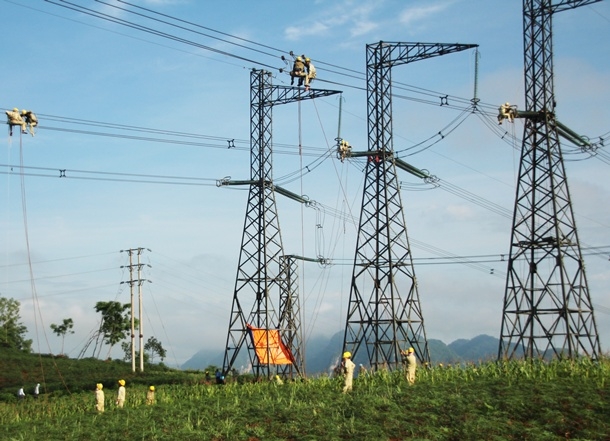Tuesday, 03/03/2026 | 14:53 GMT+7
Phu Hoa Ward, Thu Dau Mot City cooperated with Thu Dau Mot Electricity Corporation to run the program “Streets of power-saving culture”, responding to power-saving programme and contributing to ensuring power sources for daily activities and production.
Power saving in households
Recently, Mr. Nguyen Huu Linh’s family in Street 2, Phu Hoa Ward has actively adjusted the use of electric fixtures in his family such as air-conditioners, electric fans, light bulbs; replaced some broken bulbs with compact lamps; cut down using lights and electric fans; and enhanced the use of natural light and air. Therefore, only after one month, the amount of power consumption of his family decreased dramatically, from 300kWh to nearly 200kWh.
Mr. Linh stated that: “In order to respond to the programme “Streets of power-saving culture”, I and other family members decided to change power-using habit, rearrange electrical appliances in our house, so we saved amount of expenses in each month. Activities such as turning off lights and other unnecessary electrical equipment; switching off electrical sources in case of not using electrical equipment; using fittings with high power consumption appropriately; using power-saving devices such as compact lamps, led lamps, fluorescent lamps; taking full advantage of natural light and natural ventilation, … demonstrate high effectiveness.”

Mrs. Tran Thi Do in Cluster 5, area 9, Phu Hoa saves electricity by salvaging woods to boil water instead of using electric kettle, cooking rice using electric cooker about 30 to 45 minutes before meal. Particularly, her family also uses solar water heaters. Hence, monthly electric bills of her family reduces considerably.
The programme “Streets of power-saving culture” has been implemented not only in each family but also at schools. Nguyen Huu Tien, a student at Phu Hoa 1 primary school said that he was introduced to how to save electricity. Thus, Tien knew how to turn off lights after he finished his study, shut down computers and other electrical equipment before leaving room.
Varied forms of propaganda
By several forms of propaganda of the local authority, the people in Phu Hoa Ward have gradually been fully aware of the purposes and meaning of saving electricity and water. A few of good habits of the people have been formed in using electricity; more importantly, the people acquire knowledge of safe methods of using fittings.
The new point is that the programme is attached to the criterion for family of culture and considered as a condition for awarding the title of family of culture. It is also associated with the movement “Study and follow the moral example of Ho Chi Minh” that makes the movement of power saving spread widely in the society. While the local authority actively implemented solutions, Thu Dau Mot Electricity Corporation also supported documents, supervised electric bills of the families who registered for the programme, summarized and compared the data in order to identify typical families and groups.
Mr. Phan Van Luong, Vice-chairman of People’s Committee of Phu Hoa Ward stated that the consciousness of power saving of households, enterprises and state agencies in the local area had been raised, contributing to the increase of saved power. To achieve this result, the local authority came up with detailed power-saving plan appropriate to each targeted subjects. In which, agencies, government offices and state budget beneficiary agencies have to formulate and issue rules on electricity use; identify economical power use as a target for assessment of mission levels completed, execution of internal discipline, annual emulation and rewards. Businesses with high energy consumption are forced to perform energy audit or control the indicator of electricity consumption which must be lower than or equal to that of previous year.
Ngoc Anh







